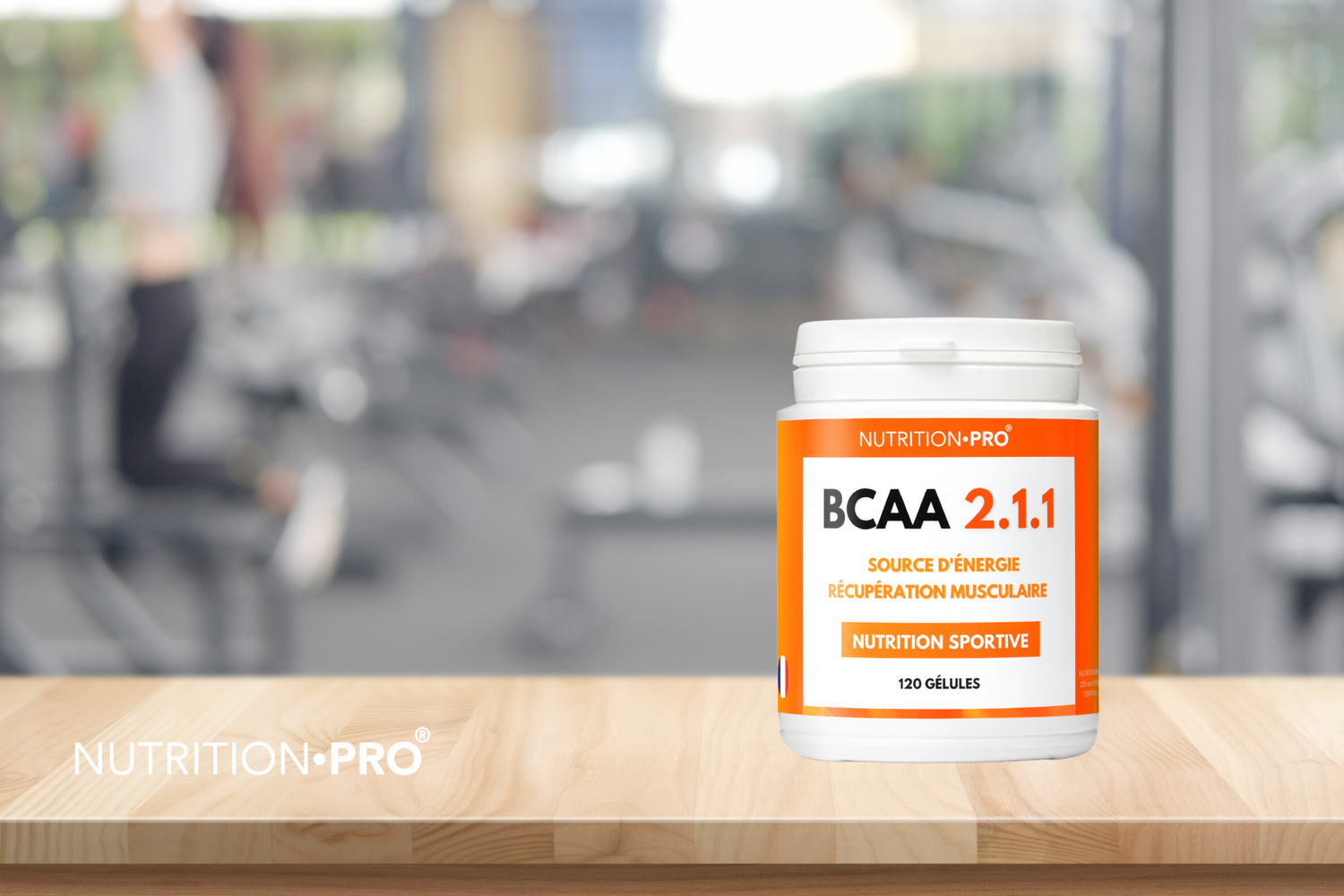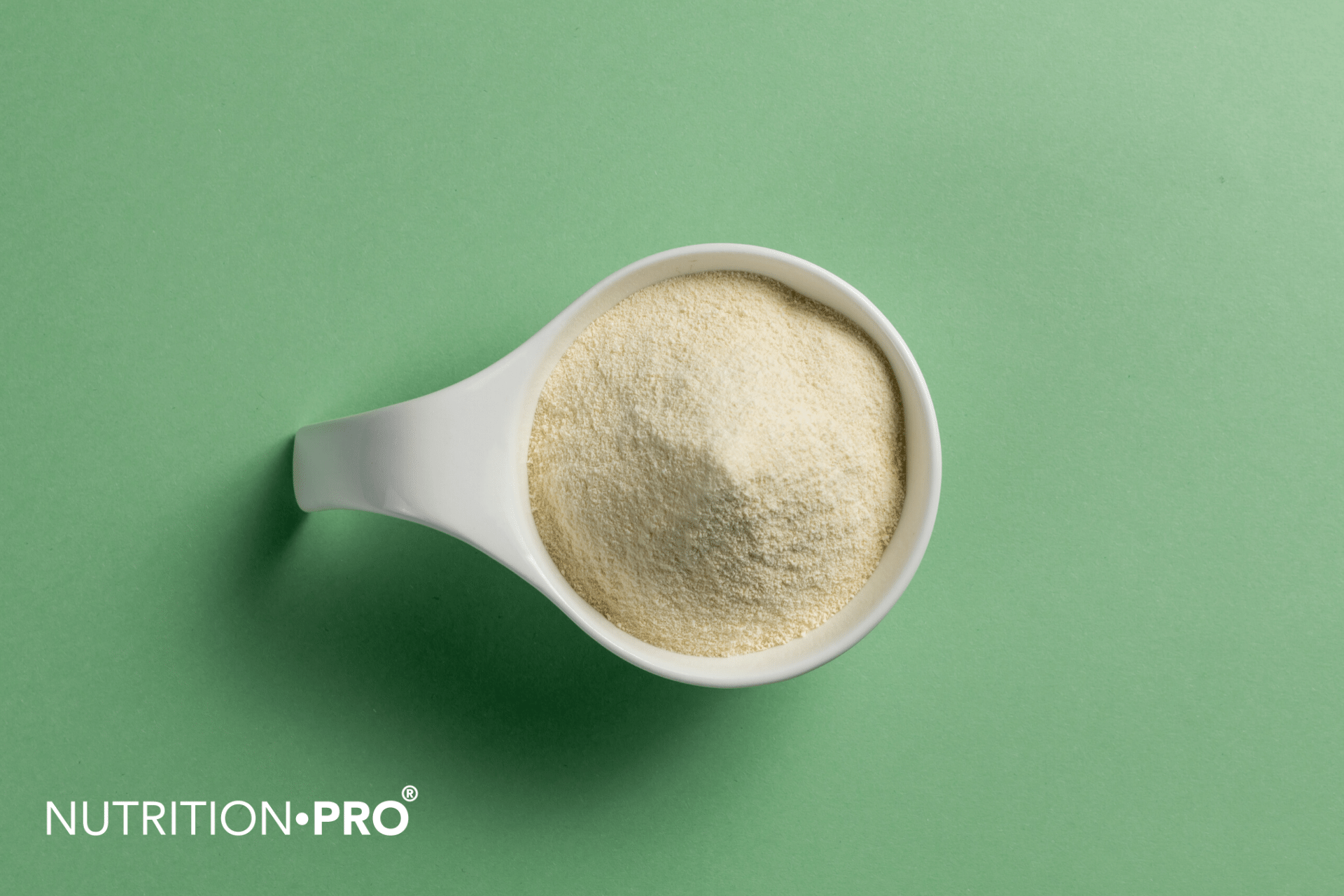With increasing popularity in the weight room, BCAAs ( Branched Chain Amino Acids) have gained prominence in the world of dietary supplements.
They are best known, and rightly so, for helping you recover faster , building muscle protein, and reducing fatigue .
What are BCAAs?
BCAA is the abbreviation for branched chain amino acid.
There are 20 different amino acids that make up the thousands of different proteins in the human body.
Nine of the 20 are considered essential amino acids , meaning they cannot be made by your body and must be obtained through your nutrition .
The nine essential amino acids are: histidine, isoleucine, leucine, lysine, methionine, phenylalanine, threonine, tryptophan and valine.
Of these nine essential amino acids , three are branched-chain amino acids ( BCAAs ): leucine, isoleucine, and valine.
“Branched chain” refers to the chemical structure of BCAAs , which are found in protein-rich foods like eggs, meat, and dairy. They are also a popular dietary supplement sold primarily in powder form.

Find our BCAAs by clicking here
What are the benefits of BCAAs ?
BCAAs are more than a quick fix or making your friends at the gym look like you know what you're doing.
Below, we bring you five of the most relevant BCAA benefits that apply to everyone, whether you lift cast iron five times a week, swear by short, sharp HIIT sessions, or just wanted to recover more easily from exercise.
1. BCAAs increase muscle growth
One of the most popular uses of BCAAs is to increase muscle growth .
The leucine BCAAs activates a certain pathway in the body that stimulates muscle protein synthesis, which is the process of building muscle .
In one study, people who consumed a beverage with 5.6 grams of BCAAs after their resistance training had a 22% greater increase in muscle protein synthesis compared to those who consumed a placebo beverage .
That being said, this increase in muscle protein synthesis is about 50% less than what has been seen in other studies where people consumed a whey protein shake containing a similar amount of BCAAs .
Whey protein contains all of the essential amino acids needed to build muscle .
Therefore, although BCAAs can increase muscle protein synthesis , they cannot do so to the fullest without the other essential amino acids, such as those found in whey protein or other complete protein sources .
2. BCAAs decrease muscle pain
Some research suggests that BCAAs may help reduce muscle soreness after a workout .
It's not uncommon to feel pain a day or two after a workout, especially if your exercise routine is new.
This pain is called delayed onset muscle soreness (DOMS), which develops 12 to 24 hours after exercise and can last up to 72 hours .
Although the exact cause of DOMS is not clearly understood, researchers believe it is the result of tiny tears in the muscles after exercise .
BCAAs have been shown to decrease muscle damage, which may help reduce the length and severity of DOMS.
Several studies show that BCAAs decrease protein breakdown during exercise and decrease levels of creatine kinase, which is an indicator of muscle damage.
In one study, people who took BCAAs before a squat exercise experienced reduced DOMS and muscle fatigue compared to the placebo group .
Therefore, BCAA supplementation , especially before exercise, can speed up recovery time .
3. BCAAs reduce fatigue during exercise
Just as BCAAs can help reduce muscle soreness from exercise, they can also help reduce exercise-induced fatigue .
Everyone experiences fatigue and exhaustion from exercise at some point. How quickly you tire depends on several factors, including exercise intensity and duration, environmental conditions, and your level of nutrition and fitness .
Your muscles use BCAAs during exercise , causing levels in your blood to decrease. When BCAA blood levels decline, levels of the tryptophan, a essential amino acid, increase in your brain .
In your brain, tryptophan is converted into serotonin, a brain chemical thought to contribute to the development of fatigue during exercise .
In two studies, participants who supplemented with BCAAs improved their mental focus during exercise , which is believed to result from the fatigue-reducing effect of BCAAs .
However, this decrease in fatigue is unlikely to translate into improved physical performance .
4. BCAAs Prevent Muscle Wasting
BCAAs can help prevent muscle wasting or breakdown.
Muscle proteins are constantly being broken down and rebuilt (synthesized). The balance between muscle protein breakdown and synthesis determines the amount of protein in muscle .
Wasting or muscle breakdown occurs when protein breakdown exceeds muscle protein synthesis.
muscle wasting is a sign of malnutrition and occurs with chronic infections, cancer, periods of fasting, and as a natural part of the aging process .
In humans, BCAAs represent 35% of the essential amino acids present in muscle proteins. They make up 40% of the total amino acids required by your body .
Therefore, it is important that BCAAs and other essential amino acids are replaced during periods of muscle wasting to stop it or slow its progression.
Several studies support the use of BCAA supplements to inhibit muscle protein breakdown. This may improve health outcomes and quality of life in certain populations, such as the elderly and those with wasting diseases like cancer .
5. BCAAs benefit people with liver disease
BCAAs may improve the health of people with cirrhosis, a chronic disease in which the liver does not function properly.
An estimated 50% of people with cirrhosis will develop hepatic encephalopathy, which is the loss of brain function that occurs when the liver is unable to remove toxins from the blood .
While certain sugars and antibiotics are mainstays of treatment for hepatic encephalopathy, BCAAs can also benefit people with the condition .
A review of 16 studies including 827 people with hepatic encephalopathy found that taking BCAA supplements had a beneficial effect on symptoms and signs of the disease, but had no effect on mortality .
Liver cirrhosis is also a major risk factor for developing hepatocellular carcinoma, the most common form of liver cancer, for which BCAA supplements may also be helpful .
Several studies have shown that taking BCAA supplements may provide protection against liver cancer in people with liver cirrhosis .
As such, scientific authorities recommend these supplements as a nutritional intervention for liver disease to prevent complications .
BCAA-Rich Foods
BCAAs are found in foods and protein supplements whole.
Getting BCAAs from whole protein sources is more beneficial because they contain all of the essential amino acids.
Fortunately, BCAAs are found in abundance in many whole protein foods and supplements. This makes BCAA supplements unnecessary for most, especially if you're already getting enough protein in your diet .
Eating protein-rich foods will also provide you with other important nutrients that BCAA supplements lack.
The best dietary sources of BCAAs include :
| Food | Portion | BCAAs |
| Beef | 100 grams | 6.8 grams |
| Chicken breast | 100 grams | 5.88 grams |
| protein powder | 1 spoon | 5.5 grams |
| soy protein powder | 1 spoon | 5.5 grams |
| canned tuna | 100 grams | 5.2 grams |
| Salmon | 100 grams | 4.9 grams |
| Turkey breast | 100 grams | 4.6 grams |
| Eggs | 2 eggs | 3.28 grams |
| Parmesan cheese | 1/2 cup (50 grams) | 4.5 grams |
| 1% milk | 1 cup (235ml) | 2.2 grams |
| Greek yogurt | 1/2 cup (140 grams) |
2 grams |
The essential
Branched-chain amino acids ( BCAAs ) are a group of three essential amino acids : leucine , isoleucine and valine .
They are essential, which means they cannot be produced by your body and must be obtained from food or supplements.
BCAA supplements have been shown to strengthen muscles, reduce muscle fatigue and relieve muscle pain.
They have also been used successfully in hospital settings to prevent or slow muscle loss and to improve symptoms of liver disease.















